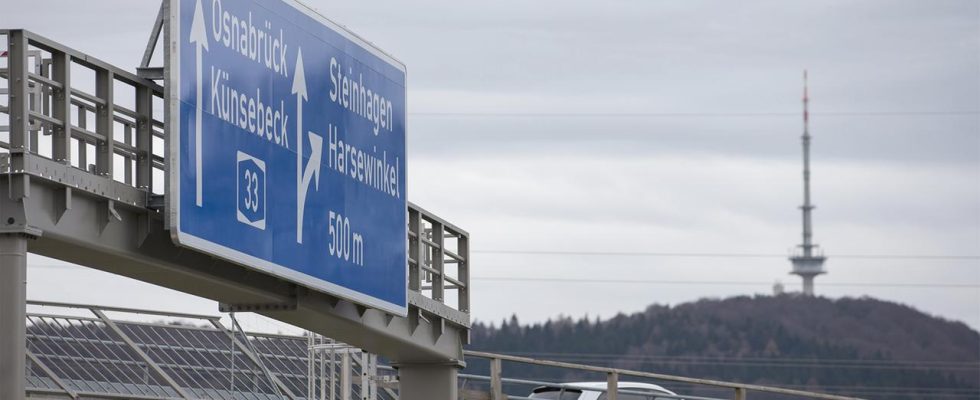Deutsche Telekom wants to significantly improve its mobile network on the Autobahn. In the coming years, the output is to be roughly doubled. The goal is consistent 5G network quality.
Dead spots on Germany’s autobahns are said to be becoming increasingly rare. Deutsche Telekom wants to significantly improve its mobile network on the 13,000 kilometers of German autobahn. “The aim is to significantly increase the surfing speed and to minimize the number of dropped calls,” explained the Bonn-based company. In the coming years, 400 additional radio sites are to be set up and existing systems modernized.
Telekom currently has a good 6,000 locations along the Autobahn. With the expansion, the available transmission rate of currently at least 100 megabits per second should be roughly doubled by the end of 2027. The aim is a continuous 5G network quality or at least LTE with a data speed of at least 200 megabits per second.
The corresponding agreement with the federally owned Autobahn GmbH provides for a simplified and faster location search including construction planning. In the future, the Telekom company wants to make space available directly next to the roadway so that new masts can also be built on embankments, in rest areas or at construction yards.
“Highway network with 5G important goal of the federal government”
The federal company is aiming for comparable agreements with the other two German network operators Vodafone and Telefónica (O2). “The nationwide coverage of the motorway network with 5G is an important goal of the federal government,” said Parliamentary State Secretary in the Ministry of Transport, Oliver Luksic (FDP). It should also serve the development of “autonomous, networked and sustainable mobility”.
With the agreement, Telekom goes beyond state expansion obligations. The specification from the 2019 frequency auction states that every network operator must cover all motorways with at least 100 megabits per second from the beginning of 2023. All three network operators reported to the Federal Network Agency that they were complying with this obligation. The supervisory authority is currently examining whether this is also true.
However, dead spots on the highway are still possible. The Network Agency’s list of conditions allows exceptions to the network obligation where expansion is “legally and actually” not possible – for example because no property owner is willing to rent out his land as a radio tower site. The connection is also sometimes poor in nature reserves or in tunnels.

